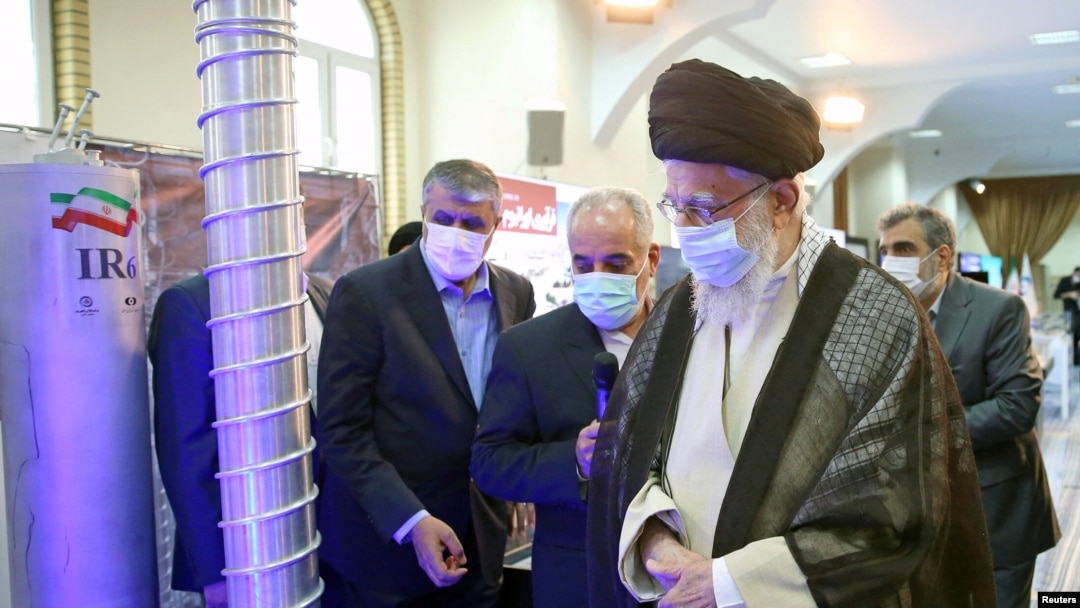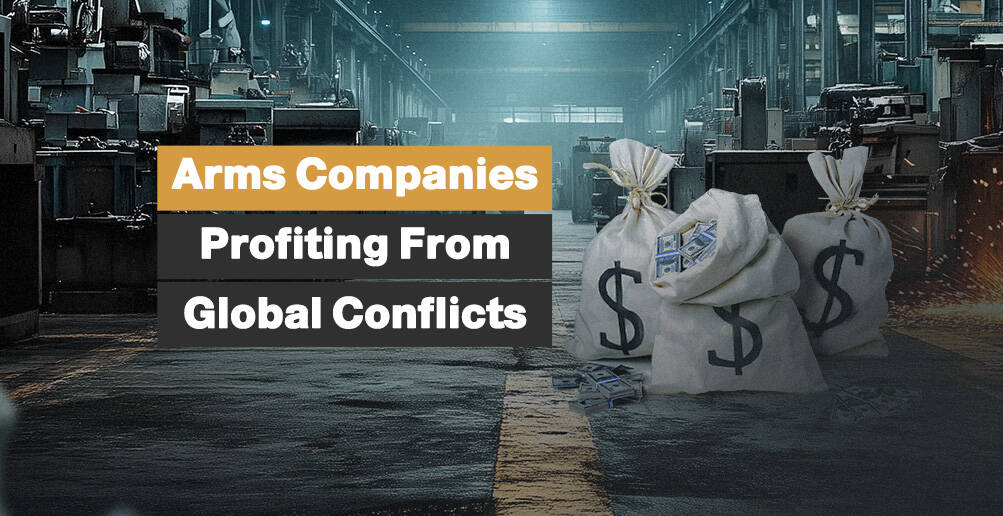How Trump Is Implementing a New Strategy to Confront Iran

“Pressure has been mounting on Khamenei to revise his nuclear policy.”
US President Donald Trump has confirmed that he wants to reach a deal with Iran on non-nuclear issues, stressing that he prefers this to being exposed to a military strike by “Israel”.
Meanwhile, senior Iranian officials expressed their support for the position of Iranian Supreme Leader Ali Khamenei regarding his refusal to negotiate with the new US administration.
Last week, Trump had returned to the strategy of maximum pressure on Iran by signing an executive order ordering the tightening of sanctions on Tehran and confronting attempts to breach them.
However, Trump left the window of diplomatic dialogue open for Tehran regarding reaching a comprehensive deal that addresses the impasse regarding its nuclear program, as well as its ballistic missile program and regional activities.
Tehran had anticipated Trump's executive order by revealing a new missile arsenal and carrying out military maneuvers simulating the defense of its nuclear facilities in the event of an attack.
Trump's Strategy
Within 24 hours, US President Donald Trump's tone regarding dealing with the Iranian file changed from escalation to calm.
On February 4, Trump signed a memo reimposing a tough policy on Iran meant to block the country from achieving a nuclear weapon and to limit its oil exports.
Citing intelligence assessments that Iran may be engaged in developing nuclear weapons, Trump said, “It is imperative that all paths to a nuclear weapon be closed and that the policy of nuclear blackmail be ended.”
Trump has described Iran’s behavior as a threat to U.S. national security, emphasizing that his administration’s policy is to neutralize its aggressive campaign in the Middle East.
On February 5, Trump struck a more diplomatic tone in his remarks on Truth Social, when he expressed his willingness to meet with his Iranian counterpart, Masoud Pezeshkian, to try to persuade Tehran to abandon what the U.S. believes are efforts to acquire a nuclear weapon.
But on February 6, the U.S. Treasury Department did impose financial sanctions on entities and individuals accused of selling hundreds of millions of dollars worth of Iranian oil to China, in compliance with Trump’s decision to reduce Tehran’s crude oil exports to zero.
In his most recent remarks, Trump expressed in an interview with Fox News broadcast on February 10 that he believes there are two ways to prevent Iran from developing a nuclear weapon: either with bombs or with a written deal.
“The Iranian authorities are very concerned and afraid, and they are seeking an agreement to avoid a possible military attack,” he said.
Trump’s tough approach has pleased opponents of the Iranian regime, including Republicans who have long accused the Biden administration of being too soft on Khamenei’s regime.
Democrats, on the other hand, have been unable to offer effective opposition to Trump’s wave of executive orders aimed at shrinking the size of the government and restricting their political priorities.
In turn, Behnam Ben Taleblu, a senior Iran analyst at the Foundation for Defense of Democracies, said that “Trump has always been consistent in his pursuit of a diplomatic solution to the Iranian nuclear crisis even before his first presidential campaign. But the Iranian threat has grown significantly since then, both nuclear and non-nuclear.”
“The resumption of the maximum pressure campaign aims to break Iran's hardline position in negotiations, force the ruling establishment to make concessions and impose restrictions on its behavior,” he added.
On his part, former US National Security Advisor John Bolton saw Trump's policy toward Iran as confused and lacking any coherent strategy.

Iranian Arguments
On the Iranian side, Supreme Leader Ali Khamenei urged the Iranian government on February 7 not to negotiate with the Trump administration, describing such a move as reckless.
He said that talks with the U.S. are unwise, not intelligent and not honorable, in remarks that were interpreted in Iranian political circles as orders to ban any direct talks with the new US administration.
Khamenei justified his position with experience in dealing with the U.S., which has not adhered to previous agreements with Tehran.
He also warned that Iran would respond in kind if the U.S. attacked it, saying: “If they threaten us, we will threaten them. If they carry out their threats, we will carry out our threats as well.”
Observers interpreted Khamenei’s tone in this regard as also directed at the reformist movement in Iran, which has long pushed for the assumption that improving people’s living conditions requires flexibility and open diplomacy with the West and the United States.
Khamenei’s suggestion that negotiations with Trump are not rational also includes a direct message to President Pezeshkian, who has repeatedly reiterated his adoption of rational diplomacy that derives its approach from the Supreme Leader himself.
It is noteworthy that Khamenei has the final say in Iranian foreign policy, and has exceptional powers to make decisions regarding negotiation or not with international parties, especially the nuclear file.
In line with Khamenei’s statements, Iranian President Masoud Pezeshkian made new statements on February 8, challenging Trump’s recent policy of tightening sanctions.
He accused his country’s opponents of seeking to subjugate it and establish the idea of Iran’s weakness with the aim of launching a military strike.
Pezeshkian stressed that his country is continuing on its path and will not back down as a result of US sanctions on the Iranian economy.
“The enemies think that we will die of hunger because of the sanctions imposed on us, but this is not true,” he said.
It is noteworthy that Pezeshkian built an important part of his electoral strategy on working to lift economic sanctions on Iran, considering that these sanctions have harmed Iranians, and that it is time to lift them and end the suffering of the Iranian economy.
On his part, Foreign Minister Abbas Araghchi said that lifting Western sanctions on Iran requires negotiation, but not under the US maximum pressure strategy because in this case it would be a form of surrender.
In the same context, senior Iranian officials rushed to express their support for Khamenei’s position.
Parliament Speaker Mohammad-Bagher Ghalibaf called on Pezeshkian’s government to comply with Khamenei’s directives, warning against Trump’s efforts to disarm Iran, including ballistic missiles.
In contrast, some Iranian politicians, including Hesameddin Ashna, an adviser to former President Hassan Rouhani, saw Khamenei’s statements about preventing talks with Washington as having another facet, pointing out that he wanted to emphasize that negotiations should be smart, rational, and honorable.
This view was met with a quick reaction from Mehdi Fazaeli, a member of Khamenei's office, who considered Ashna’s remarks a blatant distortion.
Former reformist MP Akbar Alami rejected any conclusions about Khamenei’s opposition to talks with the U.S.
Political analyst Ibrahim Khatib told Al-Estiklal that “Tehran's options have become limited, especially in light of its recent regional setbacks and the increasing popular discontent over the country’s deteriorating economy.”
He also stressed that “the margin of maneuver for Khamenei's regime has become very narrow if it rejects Trump's offer to negotiate directly with Pezeshkian on all pending issues.”

Nuclear Deal
In 2015, Iran reached a deal with the U.S., France, Germany, Britain, China and Russia, imposing restrictions on its nuclear program in exchange for easing international sanctions against it.
Under this deal, Iran handed over 97% of its nuclear materials and reduced its research and development, but did not dismantle all of its facilities.
However, US President Donald Trump withdrew from the deal in 2018 during his first term, and reimposed severe sanctions that crippled the Iranian economy, to the dismay of his European partners.
Trump did not hesitate to accuse former US President Joe Biden of weakening the US approach to Iran by not strictly enforcing his previous sanctions.
It is noteworthy that Iran is currently holding talks on its nuclear file with the European Troika, represented by Germany, France and Britain.
Tehran has repeatedly insisted that its nuclear program is for peaceful purposes only and that it has no intention of developing nuclear weapons.
However, new US intelligence suggests that Iranian weapons engineers and scientists are looking for a faster way to convert the country’s growing stockpile of nuclear fuel into a usable weapon within months, The New York Times reported.
In December, Rafael Grossi, head of the International Atomic Energy Agency (IAEA), said that Iran was rapidly accelerating its enrichment of uranium to 60% purity, bringing it closer to the roughly 90% level needed to make a weapon.

The Telegraph recently reported that Iran’s top military commanders have asked Supreme Leader Khamenei to revoke a fatwa banning the development of a nuclear bomb to counter existential threats from the West.
It explained that pressure on Khamenei from hardline politicians has been made public in recent months, noting that dozens of Iranian MPs last year urged their Supreme National Security Council to revise its nuclear policy.
However, Iranian President Masoud Pezeshkian last week denied to foreign ambassadors that there was a nuclear agenda, saying “War is not in our interest, and we are not seeking nuclear weapons.”
Sources
- Trump signs memo aiming to block Iran from achieving nuclear weapon
- Revoke fatwa against nuclear weapons, Iranian commanders tell Ayatollah
- Iran media purveys disinformation to justify Khamenei's rejection of US talks
- Iran Is Developing Plans for Faster, Cruder Weapon, U.S. Concludes
- Iran is willing to give Trump diplomacy 'another chance', senior Iranian official says
- The Potential Challenges of Deterring a Nuclear Iran [Research]











